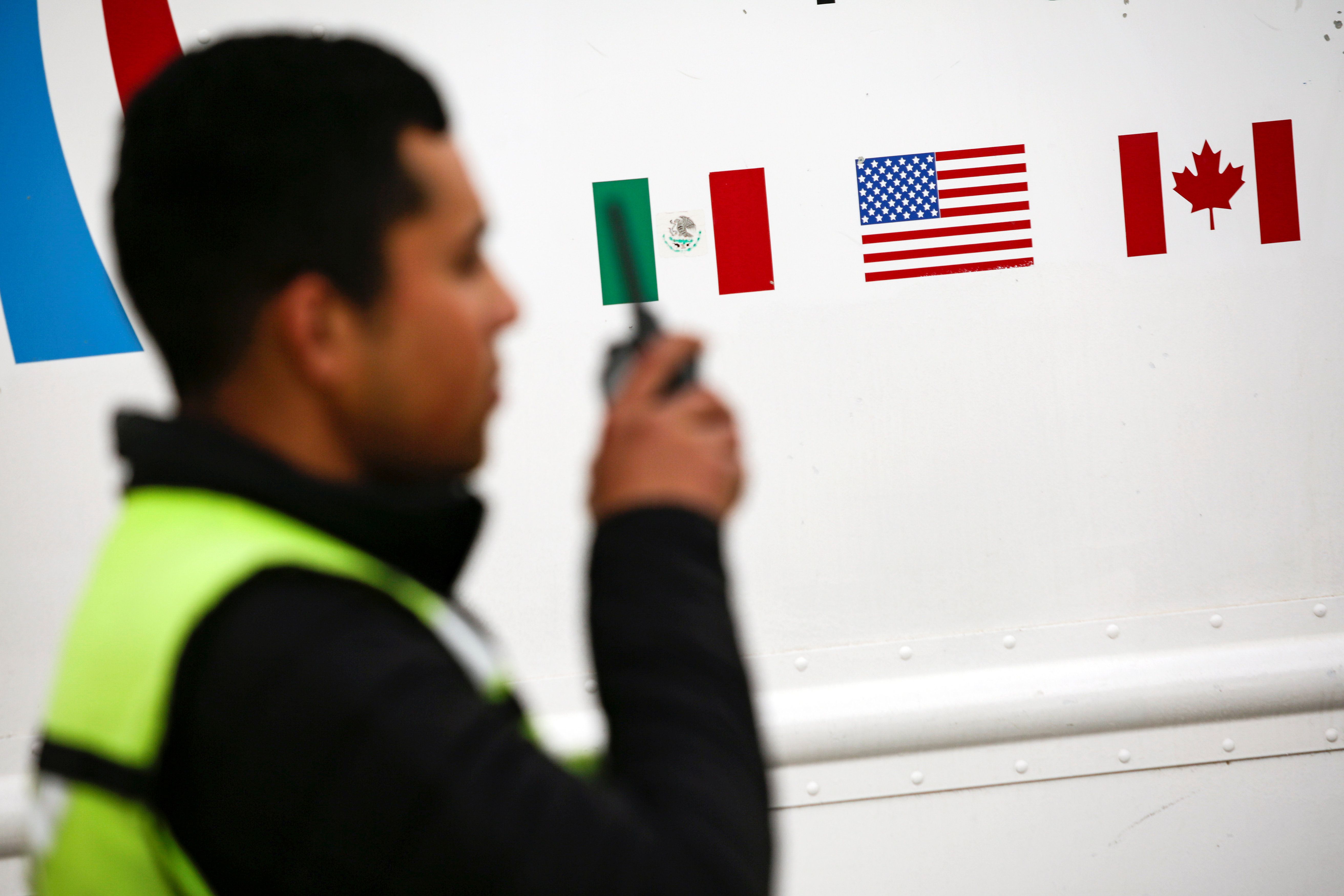June 30, 2020
Four years ago, Donald Trump promised to replace the "worst deal ever made" — known to the rest of us simply as NAFTA, the massive 1994 trade pact linking the US, Canada, and Mexico.
Now, he's officially done so. The new United States-Mexico-Canada Agreement (USMCA), which replaces NAFTA, comes into effect on July 1st.
How did we get here, and what does it mean?
Let's look back. NAFTA had a checkered history. On the one hand, it successfully integrated two of the world's most advanced economies (the US and Canada) with a developing one (Mexico), while boosting cross-border trade from $289.3 billion in 1993 to $623.1 billion in 2003, and lowering prices for most North American-made goods and services.
On the other hand, it resulted in net job losses and lower wages for many US factory workers. Coupled with the jobs that fled to China several years later, NAFTA came to be seen as part of the perfect storm of forces that clobbered American workers at the turn of the century.
Still, NAFTA was relatively popular in the US until less than a decade ago, when the economic wreckage of the financial crisis prompted more Americans to question the benefits of free trade in general, and NAFTA in particular. President Trump capitalized on that popular sentiment, pledging on the campaign trail to scrap NAFTA and replace it with something better. American views on free trade have improved dramatically since 2016, but the US is still deeply polarized on NAFTA.
So, is the UMSCA really a better deal? It depends on whom you ask. Here's the biggest issue that was on the table for each of the pact's three signatories and how it played out:
United States. Labor unions in particular are happy that the new trade deal raises minimum wages for workers who make goods covered by the deal. The US auto industry, for example, lobbied for USMCA to mandate that more of each vehicle be made by workers earning at least $16 per hour, in order to undermine the ability of lower-wage Mexican factories to take jobs from American workers.
On the other hand, vehicles made in North America will likely become more expensive for US consumers, as the new trade deal requires more of each automobile to be assembled from parts made in the US, Canada or Mexico — rather than in lower-cost Asian countries.
Mexico. Under the USMCA, Mexican workers will be less likely to get jobs outsourced from the US and Canada. But those who do find work will be entitled to better labor standards, including the right to unionize and to have their complaints investigated by UMSCA panels.
Canada. Canada won one big thing: the USMCA retains NAFTA's trade dispute settlement mechanisms, meaning that trade disputes with US companies will be settled by a multilateral panel rather than in a US court (as the Trump administration wanted). But the Canadian dairy industry, for one, is not happy about having to open the local market to US competition. No use crying over spilled milk now, though.
And what about Trump? Upon first glance, following through on a campaign promise to revisit a major trade deal is a big political win for the US president, who views trade as a zero-sum game and believes tariffs are the best way to resolve most trade disputes. It also reduces the pressure on Trump to move beyond his "phase one" deal with China — his main trade war opponent — before the November election.
However, a closer look reveals that the USMCA is more of a facelift than a complete do-over of NAFTA. Republican Senator Chuck Grassley once referred to the UMSCA as about 95 percent the same as NAFTA. And in the end Trump didn't get many items on his wish list, such as removing Canadian subsidies on lumber exports or scrapping Mexico's value-added tax on US imports.
Indeed, the UMSCA is often called NAFTA 2.0. The question now is, will we have to wait another 26 years for the next update?
More For You
- YouTube
At the 2026 World Economic Forum in Davos, GZERO’s Tony Maciulis spoke with Ariel Ekblaw, Founder of the Aurelia Institute, about how scaling up infrastructure in space could unlock transformative breakthroughs on Earth.
Most Popular
Haitian soldiers keep a watch outside the venue where businessman Laurent Saint-Cyr is set to be designated as president of Haiti's Transitional Presidential Council (CPT), in Port-au-Prince, Haiti, August 7, 2025.
REUTERS/Fildor Pq Egeder/File Photo
On Friday, US officials warned the transitional council in charge of Haiti not to remove interim Prime Minister Alix Didier Fils-Aimé, ahead of a deadline for the council to step down on Feb. 7.
Moldovan President Maia Sandu speaks during a Council of Europe diplomatic conference to launch the International Claims Commission for Ukraine, aimed at handling compensation claims related to Russia's war in Ukraine, in The Hague, Netherlands, December 16, 2025.
REUTERS/Piroschka van de Wouw
The president of the tiny eastern European country has suggested possibly merging with a neighbor.
Hard numbers: US pitches “New Gaza,” Japan paves way for snap elections, “Sinners” smashes records, & More
Jan 23, 2026
Middle East negotiator and son-in-law of President Trump, Jared Kushner talks with Israeli diplomats following a joint press conference in the State Dining Room of the White House in Washington, DC, USA, 29 September 2025.
$25 billion: The minimum amount of investment required to fulfil Jared Kushner’s ambitious property plan for Gaza.
© 2025 GZERO Media. All Rights Reserved | A Eurasia Group media company.
